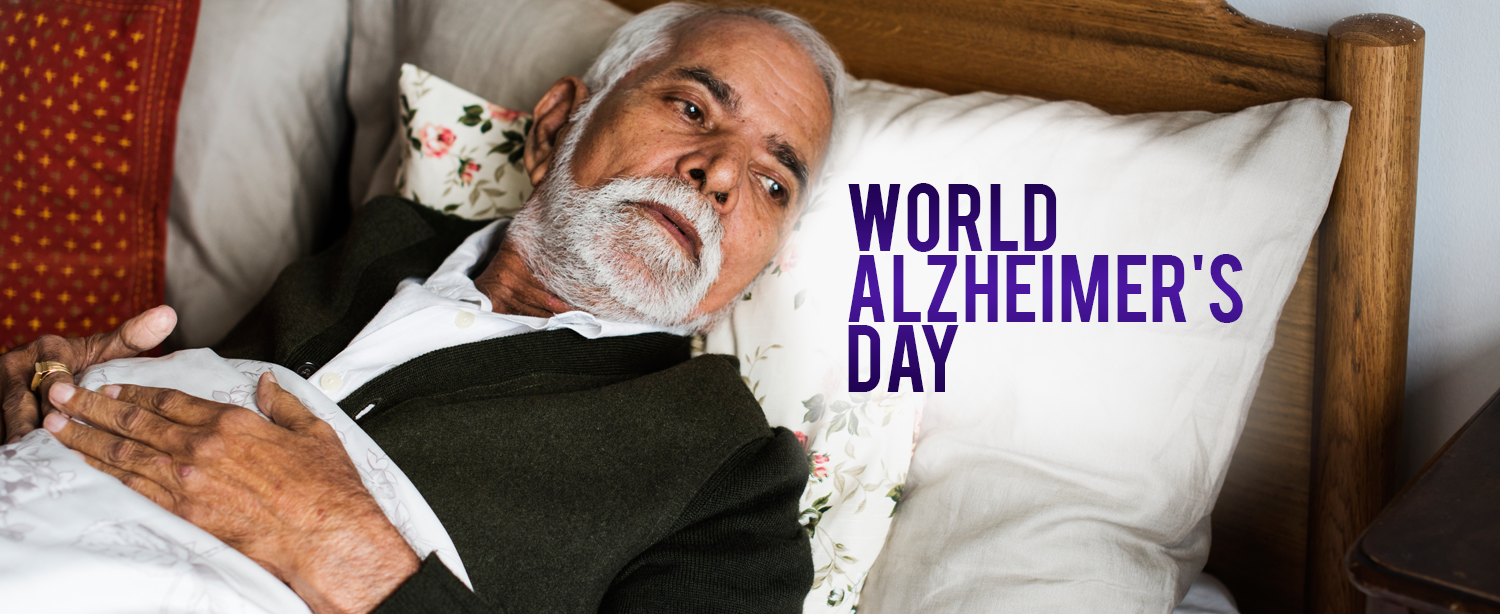Alzheimer’s disease is an irreversible, progressive brain disorder that slowly destroys memory and thinking skills and, eventually, the ability to carry simple everyday tasks. Alzheimer’s disease is the most common cause of dementia among older adults. The disease is named after Dr. Alois Alzheimer.
People suffering from Alzheimer’s might forget their loved ones. They might forget how to dress themselves, feed themselves, and use the toilet. The disease makes your brain tissue break down over time. It usually happens to people over age 65. A person can live with Alzheimer’s disease for just a few years or for a few decades.
Prevent Alzheimer’s
Here are a few things you can do to enhance your brain health and work to prevent Alzheimer’s:
1. Learn a second (or third, or fourth) language.
2. Eat raw fruits and vegetables.
3. Add a vitamin K supplement to your diet.
4. Reduce stress.
5. Commit to regular exercise.
6. Laugh more.
7. Limit sugar intake.
8. Make time for meditation.
9. Quit smoking.
10. Adopt a Mediterranean diet.
How to care for an Alzheimer’s patient:
Communication difficulties can be one of the most upsetting aspects of caring for someone with Alzheimer’s. It’s frustrating for those with the disease and for the caretaker. Familiarize yourself with some of the common situations that arise when someone has dementia, so that you can respond calmly and effectively. Here are few to tips to make note of:
- Scheduling. In order to keep your parents or loved ones safe, you have to establish a routine that will make your ordinary day more predictable, stable and less stressful.
- “Cues.” Explain regular, everyday things in detail. For example, if you name a drawer for what is inside, the patient will most likely put things in the correct place you suggested. This will ease things for both the caregiver and the patient.
- Remove danger. Remove things that could endanger patients like knives, car keys and matches.
- Use technology. Use technology at its best to monitor patient health, location as well as to keep a check on them while you are away from home.
- Create limitations. Limit your instructions to one step at a time. If you are having a conversation, limit surrounding distractions like the TV and radio. It will help your loved ones stay focused on the conversation.
- Professional help. If the patient’s health deteriorates ask for help. If required hire a professional caretaker or a nurse for full time or on a part time basis.
Facts About Alzheimer’s Disease
- More than 4 million Indians suffer from Alzheimer’s and other forms of dementia.
- Half of adults aged 85 and over have Alzheimer’s.
- More than half of the cases of Alzheimer’s remain undiagnosed.
- More women have Alzheimer’s than men.
- Globally India has the third highest number of cases of Alzheimer’s.
- India’s dementia and Alzheimer’s burden is forecast to reach almost 7.5 million by the end of 2030.
Alzheimer’s Symptoms
To receive a diagnosis of Alzheimer’s, the person must have experienced a decline in cognitive or behavioural function and performance compared with how they were previously. This decline interferes with their ability to function at work or in usual activities. The cognitive decline must be observed in at least two of the five symptom areas listed below:
1. Reduced ability to take in and remember new information, which includes:
- Getting lost on a familiar route.
- Repetitive questions or conversations.
- Misplacing personal belongings.
- Forgetting events or appointments.
2. Impairments related to reasoning, complex tasking, taking decisions, for example:
- Poor decision-making ability.
- Poor understanding of safety risks.
- Inability to manage finances.
- Inability to plan complex or sequential activities
3. Impaired visuospatial abilities like:
- Inability to recognize faces or common objects.
- Inability to use simple tools.
4. Impaired speaking, reading and writing, for example:
- Difficulty thinking of common words while speaking.
- Speech, spelling, and writing errors.
5. Changes in personality and behaviour, for example:
- Mood changes, including agitation, social withdrawal.
- Loss of empathy.
- Compulsive, obsessive, or socially unacceptable behaviour.
The number one symptom of Alzheimer’s still remains as memory loss especially in the area of learning and recalling new information. If you know someone showing these symptoms guide them to our Alzheimer’s Clinic. Please find below link of our website for further details:
https://www.kokilabenhospital.com/departments/clinicsatkh/alzheimersclinic.html


